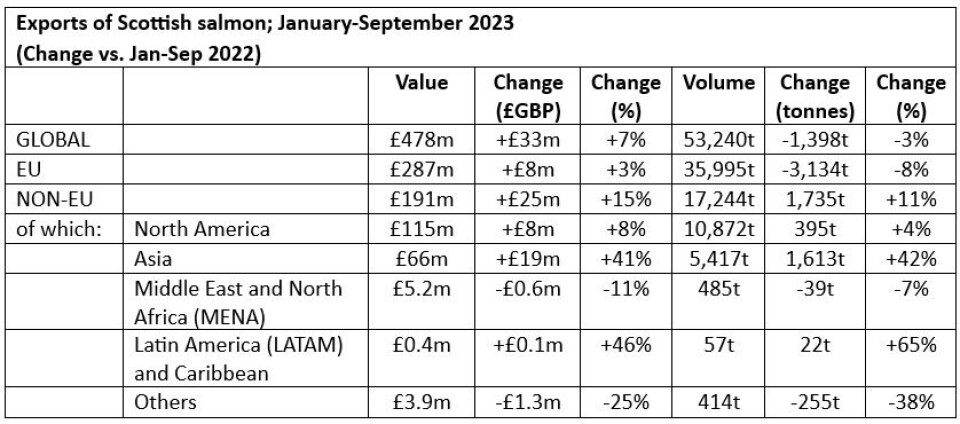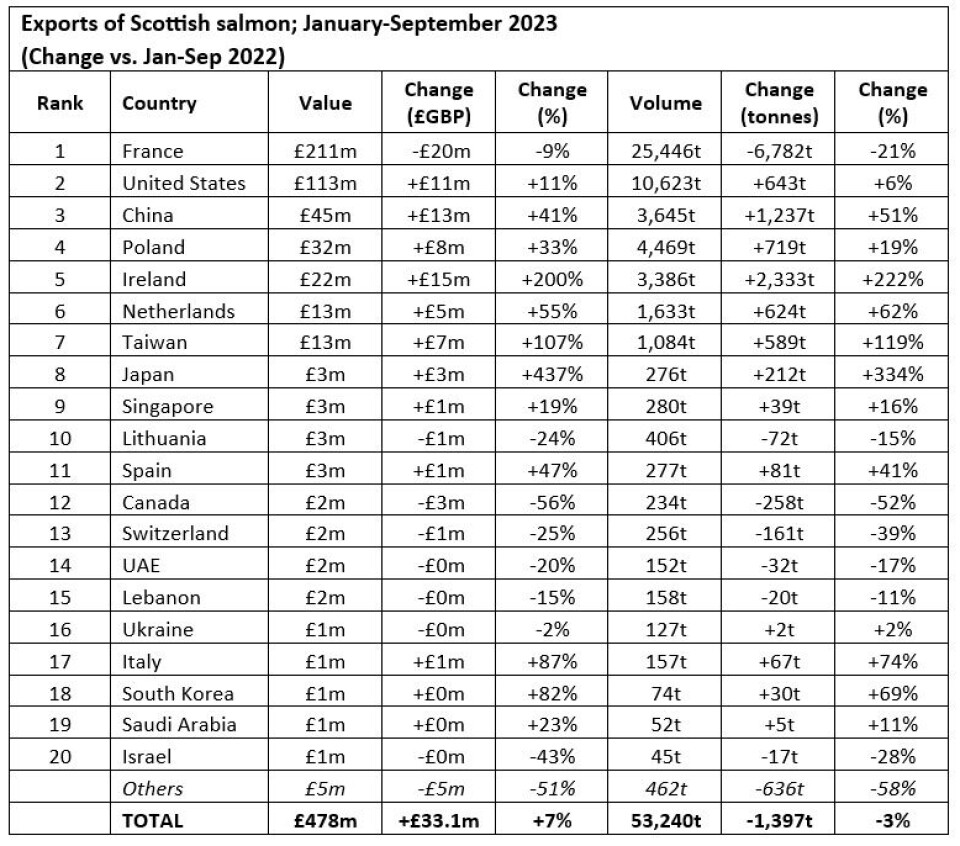
Scottish salmon export value rose by £33m in first nine months of 2023
Increase achieved despite 3% fall in volume sent overseas
The value of Scottish salmon exports increased by £33 million, or 7%, to £478m for the first nine months of 2023 compared to the same period last year, trade body Salmon Scotland said today. The increase is export value has been achieved despite a small fall in export volume of 1,397 tonnes (3%), to 53,240 tonnes.
On a rolling annual basis, exports of farmed Scottish salmon stand at £611m million, confirming salmon’s place as the UK’s top food export.
Salmon Scotland’s figures are based on analysis of data from His Majesty’s Customs and Revenue (HMRC).
The EU continues to be the key destination for exports, accounting for £287m of the total from January through September.

France remains the single largest market for Scottish salmon, with sales of £211m, although more exports are heading to other EU hubs such as the Netherlands or direct to markets further afield, resulting in falls in the value and volume of salmon going to France of £20m (9%) and 6,782 tonnes (21%) respectively.
The value of Scottish salmon exports beyond the EU increased 15% to £191m, with one in five salmon heading to the US (£113m, up 11%).
Exports to Asia increased by 41% in value and 42% in volume to £66m and 5,400 tonnes respectively.
Protecting the product
Salmon Scotland has also explained the rationale behind an application to change the 19-year-old protected geographic indication (PGI) of its members’ fish from “Scottish farmed salmon” to simply “Scottish salmon”, a move that opponents of the industry claim is to disguise the fact that the fish is farmed.
The PGI means that only farm-raised Atlantic salmon from Scotland can be called “Scottish farmed salmon”, but Salmon Scotland said that currently, inferior salmon products with lower environmental and food safety standards could be imported and sold as “Scottish salmon”.
Wild Scottish salmon is not sold in supermarkets, and farmed salmon now supplies 100% of the increasing demand for fresh Atlantic salmon.
The UK Government has therefore been asked to boost the legal protections for farmed Scottish salmon, particularly post-Brexit, by changing the PGI name simply to “Scottish salmon”.
Salmon Scotland chief executive Tavish Scott said the export figures announced today underlined the importance of Scottish salmon to the UK economy.
“Potential changes to the legal protection for Scottish salmon will help to maintain the reputation for premium Scottish salmon abroad, as well as protecting against food fraud, which risks undermining the reputation Scottish salmon has for quality and provenance,” added Scott.
























































